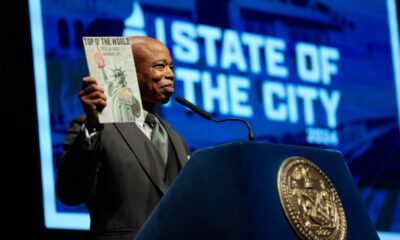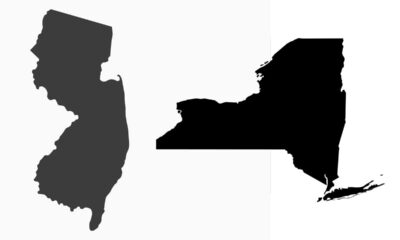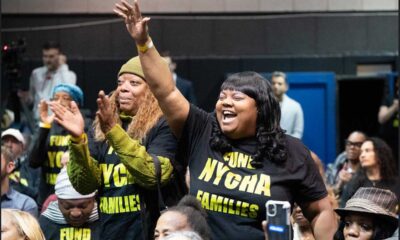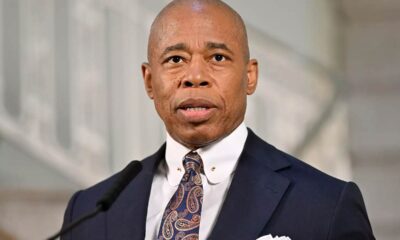News around the Web
“Cookin’ With Gas”Destined to be a Thing of the Past
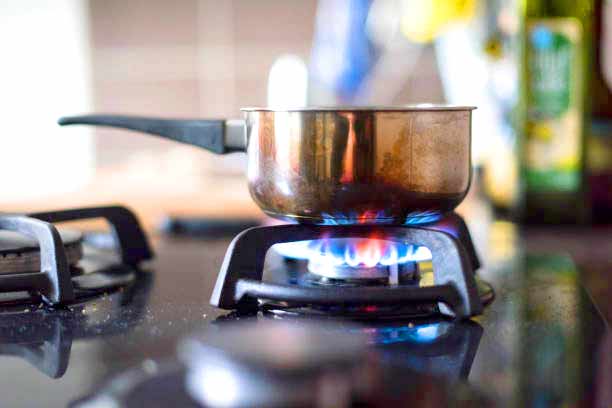
Agreement sets forth pilot that will update 100 NYCHA apartments with modern, electric stoves using existing 120-volt outlets
Today, the New York City Housing Authority (NYCHA) — with the New York State Energy Research and Development Authority (NYSERDA) and the New York Power Authority (NYPA) — announced the signing of an agreement for the Induction Stove Challenge. The program, expected to launch this fall, will be supported by NYSERDA and NYCHA as a competitive innovation challenge that calls on appliance manufacturers to design and produce energy-efficient, electric cooking systems to replace existing fossil fuel stoves while avoiding costly electrical upgrades in NYCHA buildings. The units will provide best-in-class, comfortable cooking as well as health and quality of life benefits to thousands of NYCHA households. The new stoves will also provide an attractive and cost-effective option for stove replacement for households and building owners across New York State and nationally, where pre-existing electrical systems common in most buildings may not support the induction stove products that are currently available.
Through this Challenge, NYCHA, NYSERDA, and NYPA will collectively establish performance criteria and product specifications for the induction stoves; NYPA is expected to issue a Request for Proposal (RFP) later this year to select one or more manufacturers and will support the design and testing of the new stoves.
The RFP will invite manufacturers to submit proposals that include innovative solutions and provide product designs and prototypes for new induction stoves that can be installed in older buildings using standard 120-volt/20-amp outlets. Once proposals are selected for awards, NYSERDA will support the purchase, installation, and testing of 100 stoves as a pilot, as well as new cookware for each participating NYCHA household. Through the Challenge and successful testing, NYCHA plans to purchase at least 10,000 stoves to be installed at their properties, with the goal of fully displacing gas cooking stoves in NYCHA-owned buildings. This will demonstrate to building owners the affordable conversion to efficient induction cooking, and to manufacturers the potential of a broader residential market for the new induction stove products.
To ensure that the new induction stoves can serve a large, national market, NYSERDA has hired the Building Decarbonization Coalition (BDC) to engage other states and housing providers across North America. In this way, the Challenge will build a pipeline of potential demand from others pursuing cooking electrification, aligning NYCHA’s product specifications with the needs of the broader market.
The Induction Stove Challenge complements an earlier partnership between NYCHA and the non-profit WE ACT for Environmental Justice, which replaced gas stoves with induction stoves in 10 NYCHA households at 1471 Watson Avenue in the Bronx.
“As our administration uses every tool at our disposal to give NYCHA residents the safe, high-quality, affordable homes they deserve, adapting to tackle climate change is a critical piece of our work,” said New York City Mayor Eric Adams. “From affordable housing to climate change, we are tackling the greatest challenges facing New Yorkers, and this groundbreaking agreement with NYCHA and our state partners puts that into action by providing modern, electric stoves for 100 households. Our city’s most pressing crises are interconnected, and so are the solutions we’re delivering.”
“I’ve said it before — safe and affordable housing is about creating opportunity and improving lives,” said Deputy Mayor Maria Torres-Springer. “The Induction Stove Challenge is an amazing opportunity for innovation, one that prompts industry manufacturers to develop a product that will deliver health and quality of life benefits to NYCHA residents while simultaneously bringing New York City that much closer to its carbon emission reduction goals.”
“The Induction Stove Challenge is a great example of innovation put into practice,” said NYCHA CEO Lisa Bova-Hiatt. “If energy-efficient induction stoves can be redesigned to function in NYCHA buildings, it sets an amazing precedent for what can be done with existing infrastructure, some forward thinking, and the necessary funding.”
“This technology challenge will support innovation that has the potential to not only create a safer, healthier, and energy-efficient way to cook — it is also part of the State’s commitment to target climate action investments to disadvantaged communities,” said NYSERDA President and CEO Doreen Harris. “NYSERDA is proud to partner with NYPA and NYCHA on advancing induction cooking technology as a cost-effective way to reduce onsite emissions in buildings and support the state’s transition to an inclusive clean-energy economy.”




